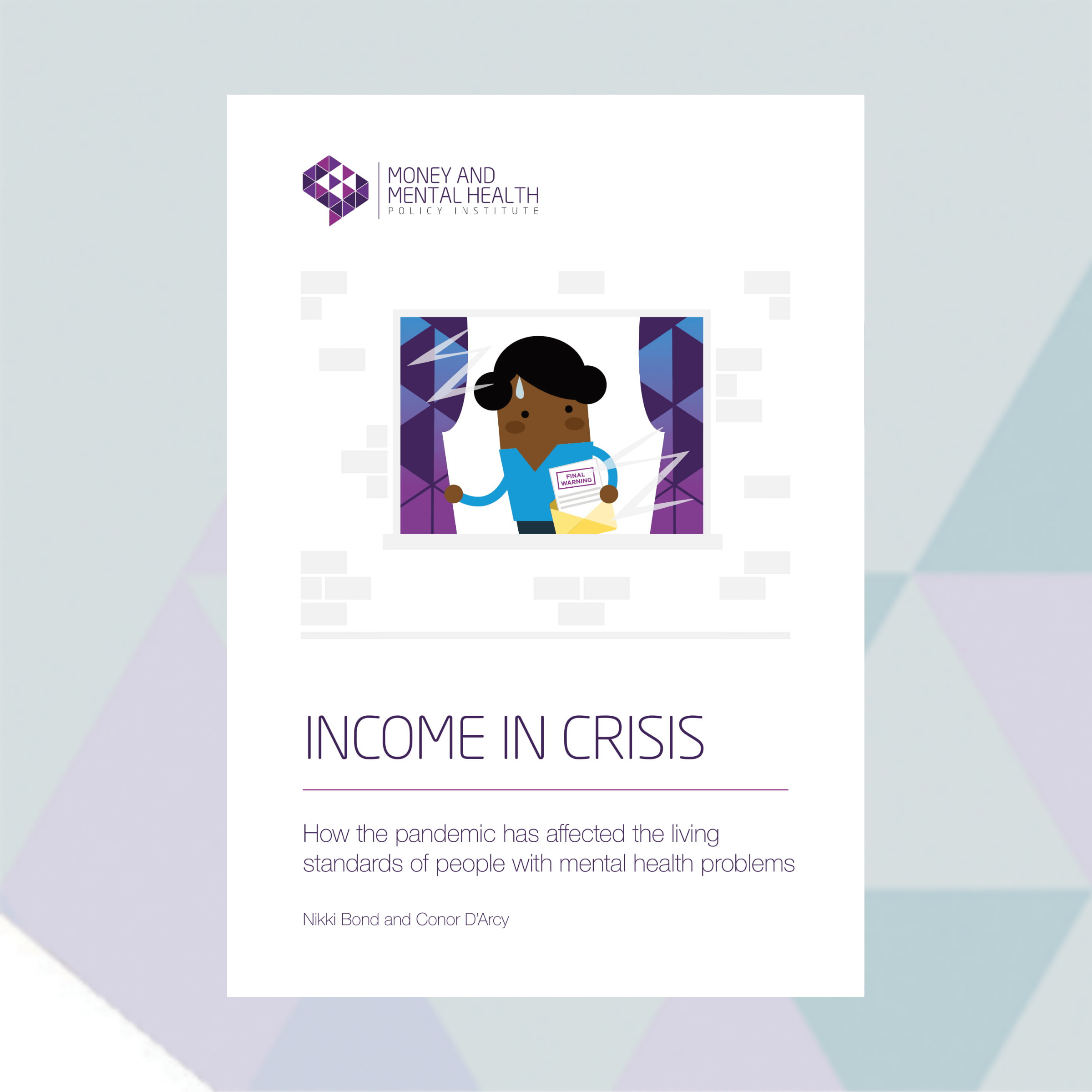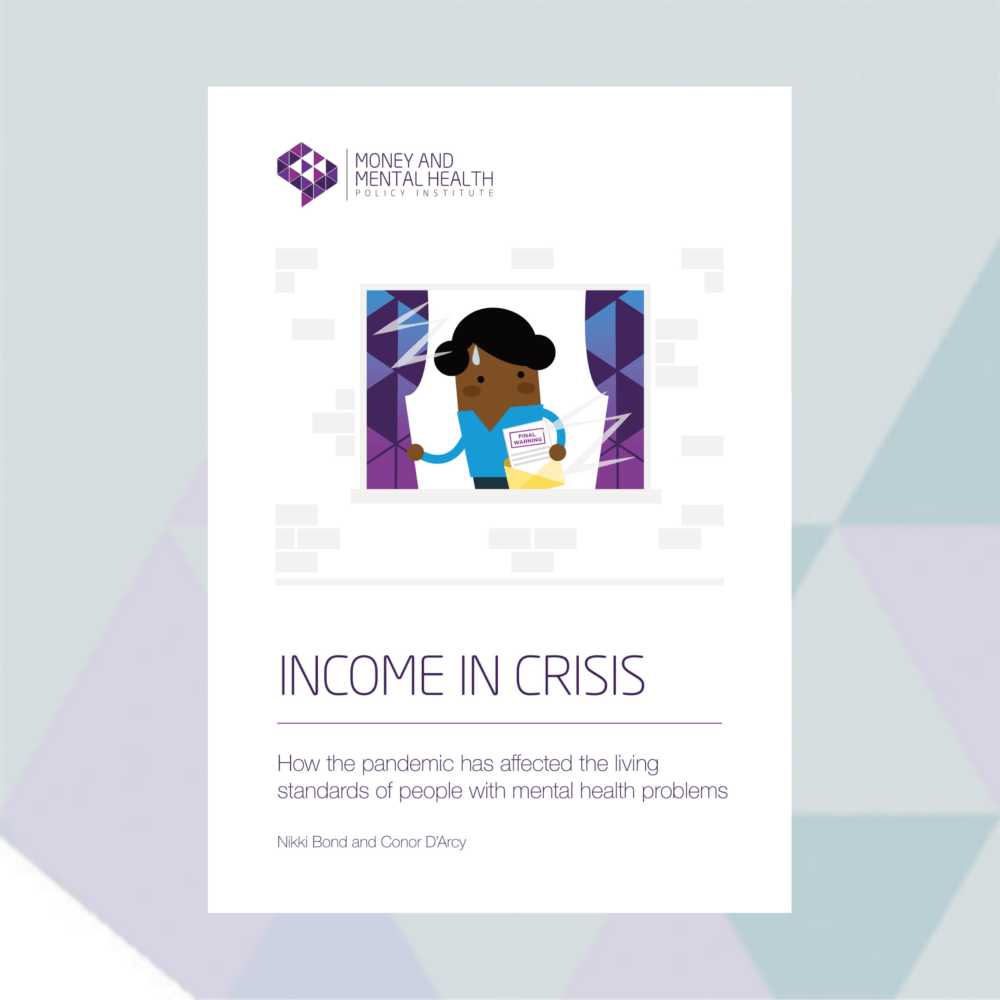Giving people with mental health problems equal access to vital services
Nikki Bond, Senior Research Officer, and Conor D’Arcy, Head of Research and Policy
Income in Crisis
How the pandemic has affected the living standards of people with mental health problems
16 June 2020
This report explores the links between mental health problems and the money people receive through work, benefits or other sources. The spread of coronavirus has made these connections all the more pressing, with the earning power of millions damaged and the state safety net more crucial than ever. In particular, the report highlights that:
- People who have experienced mental health problems have a lower average income than those who have never had a mental health problem
- People with experience of mental health problems are much more exposed to financial hardship during the coronavirus crisis than the wider population
- Despite additional government support, people are still having to make difficult financial choices – nearly a third of people with mental health problems reported having to cut back on essentials, like food or heating, and one in ten have missed a debt repayment.
Key recommendations:
- The government should closely monitor the impact of increased employer contributions to the Coronavirus Job Retention Scheme as they are introduced, including any disproportionate negative impacts on workers with mental health problems
- For at least the duration of the crisis, Universal Credit advances should be converted from loans to grants
- Increase in the generosity of Universal Credit should be extended to other benefits
- Customers in arrears should be proactively contacted with signposting for money and debt advice.

